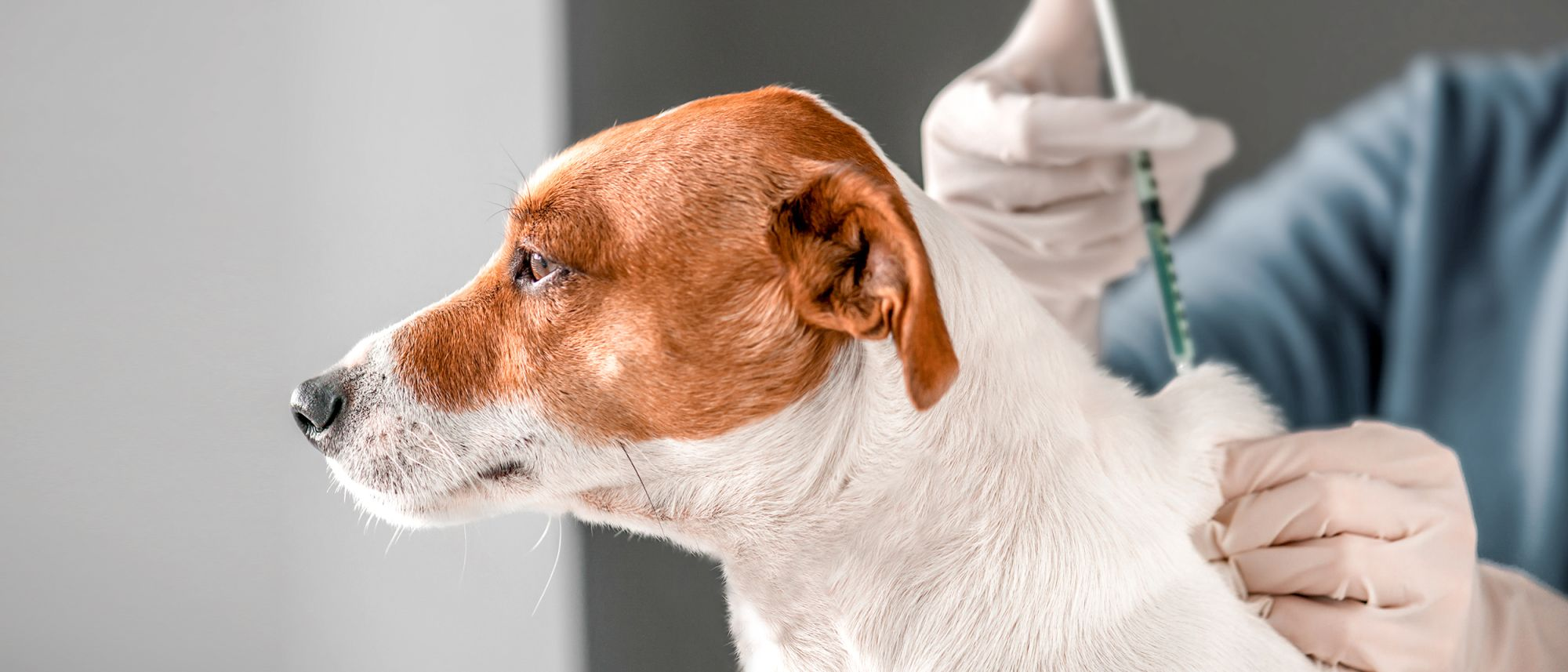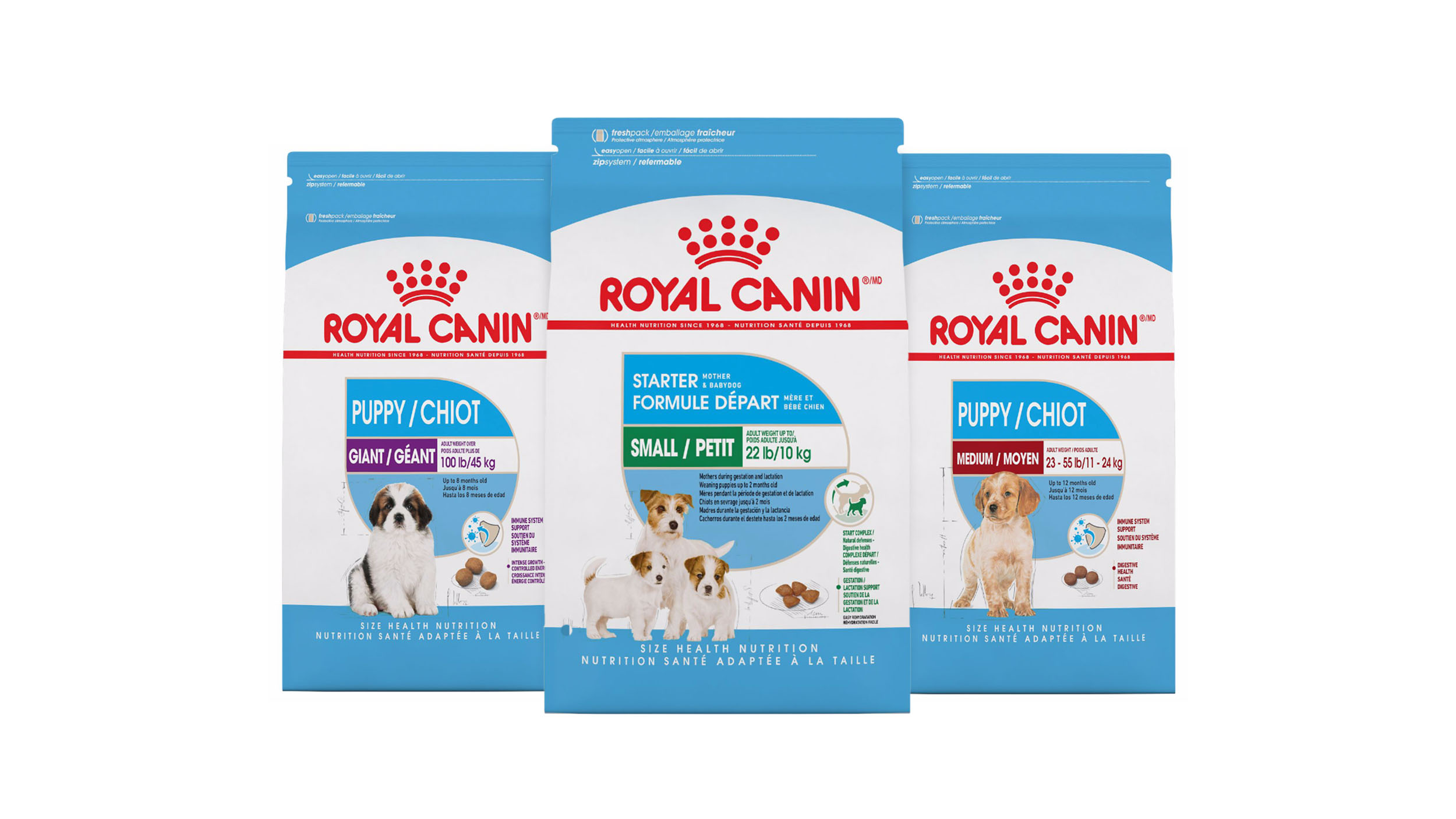Puppy vaccinations

Why does my puppy need to have vaccinations?
When puppies are first born, they completely rely on the antibodies provided in their mother’s milk. This will protect them against any harmful microorganisms.
However, this protection fades over time, meaning the puppy will become vulnerable to catching infectious diseases. The right vaccinations at the right age will help prevent your puppy from developing any of these diseases or infections.
What do puppy vaccinations do?
Vaccinations help prevent contagious and sometimes fatal diseases. Some are mandatory, while others are recommended.
What should my puppy be vaccinated against?
The mandatory vaccinations include:
- Distemper: This can take several forms, which often makes diagnosis difficult. In general it can cause high temperature, respiratory problems (rhinitis or bronchial pneumonia), digestive problems (gastroenteritis), ocular, cutaneous or nervous problems, and may often be fatal.
- Canine hepatitis: The symptoms range from slight fever and congestion of the mucosa membrane to vomiting, jaundice, stomach enlargement, depression, reduction of white blood cells, pain in the liver and severe hepititis.
- Canine parvovirus disease: Parvovirus is highly contagious and attacks the gastrointestinal system, creates loss of appetite, vomiting, fever and often severe, bloody diarrhoea. Extreme dehydration can come on rapidly and can be fatal within 48 - 72 hours.
- Leptospirosis: Leptospirosis is a zoonotic disease which comes from bacteria transmitted by rodent urine, and can be transmitted to humans and certain animals. For dogs, symptoms include fever, vomiting, abdominal pain, diarrhoea, loss of appetite, severe weakness and lethargy, stiffness, jaundice, muscle pain, infertility and kidney failure (with or without liver failure).
The recommended vaccinations include:
- Rabies: A fatal disease for dogs and for humans. Usually characterised by a swaying gait, painful neck, excessive salivation and, in some cases, convulsions of the facial muscles. Unusually aggressive behaviour is often seen, as is biting without letting go.
- Kennel cough: This is a disease caught by dogs in contact with other dogs, in kennels and dog shows for example. It causes severe coughing which can be more or less serious depending on the age and the general health condition of the dog.
How do I know the vaccinations for my puppy?
Speak to your vet and tell them where your puppy will be spending time. This could include:
- Boarding kennels
- The woods
- Day care
Also let your vet know whether you’ll be travelling outside of the country with your puppy, and any activities they may be participating in, such as dog shows or sporting events.
Your vet will then put in place a vaccination programme best suited to the needs of your puppy.
When does my puppy need to have their vaccinations?
Puppy vaccinations are most effective when they are given at fixed dates with boosters. Your puppy will usually begin a vaccination programme at around six to eight weeks of age.
A regular vaccination schedule will likely consist of the following:
- 7 to 9 weeks: distemper, infectious hepatitis, parvovirus, although this may start earlier if the puppy is in an infected environment.
- 11 to 13 weeks: booster for 3 previous vaccinations + rabies and leptospirosis.
- 15 to 17 weeks: rabies and leptospirosis boosters.
- 15 months: boosters for all vaccines above.
Will my puppy also need annual boosters?
Your puppy must be given annual boosters to ensure they are adequately vaccinated. Every year they should have the following boosters:
- Distemper
- Infectious hepatitis
- Parvovirus
What happens when my puppy is vaccinated?
When your puppy is vaccinated, they’ll be given a very small dose of the virus or bacteria. This will then stimulate their immune system to develop specific antibodies against the virus.
Could vaccines cause my puppy to contract the virus?
When used in a vaccination the virus or bacteria is most often dead or inactivated, meaning it is usually unable to cause the diseases.
How will my puppy act after their injections?
Your puppy might seem a little quiet after their injections, especially for the first day or do. This is down to their immune system responding to the vaccine.
What should I do after my puppy's had their injections?
It’s important that you keep your puppy well rested after their injections as their immune system will be working harder than normal.
If you feel they’re not back to their normal selves within 24 hours, contact your vet for advice.
It’s crucial you make sure you have the right vaccination schedule in place for your new puppy, as dog vaccination is one of the most important preventative healthcare measures you can take. As soon as you bring your new puppy home, it's vital that you speak to your vet and to ensure they have the right vaccinations at the right time.
Related Articles

Tailored nutrition for your puppy
A range of formulas that help build their natural defences, support healthy growth and digestive system development.
Like & share this page